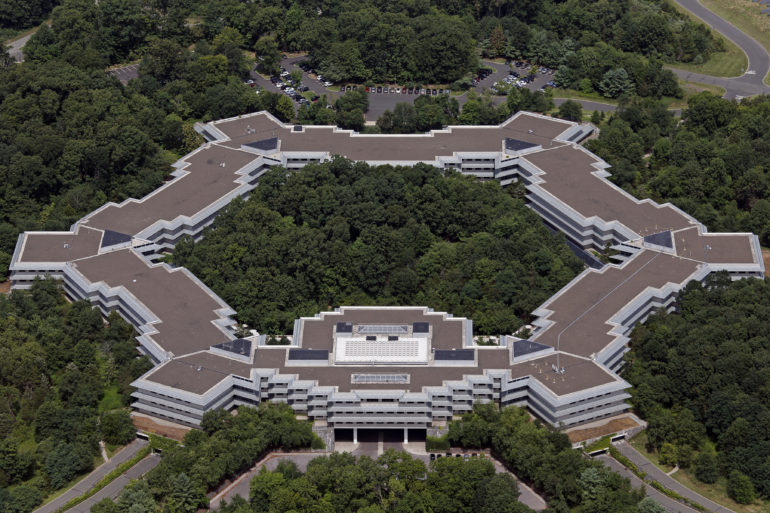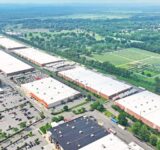UNICOM Global, led by founder and CEO Corry Hong, acquired the 1.24 million-square-foot former Merck & Co. headquarters campus in the Whitehouse Station section of Readington.
By Joshua Burd
Corry Hong had never set foot on the bucolic, grandiose Merck & Co. headquarters campus in Readington, even though the pharmaceutical giant had been a client for several years.
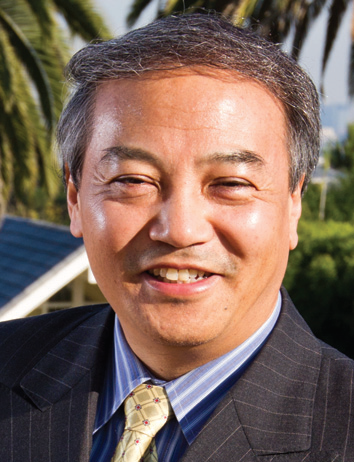
That changed around 2015 when his IT services company, UNICOM Global, began to actively look at locations for a new regional headquarters. The privately held, Los Angeles-based firm scoured the tristate area for large sites that could suit its needs, but Hong had seemingly made up his mind soon after visiting the 1.24 million-square-foot complex in Hunterdon County.
“The Merck building was such a unique opportunity,” said Hong, UNICOM’s founder, CEO and president. “The accessibility, the community and this surrounding area — I just could not let go of this property, and it just happened to be the right timing for Merck and UNICOM.
“And with UNICOM trusting Merck and Merck trusting UNICOM, it was bound to happen from the beginning … Once I came here and was meeting with Merck management and talking to them, I knew then that this is the property where we wanted to build our future.”
The news that UNICOM planned to buy the property was almost too good to be true for area residents, businesses and public officials. Merck announced in 2012 that it was leaving the town’s Whitehouse Station section and moving its headquarters to Summit, putting a rural, 1,100-acre campus on the market as companies were largely moving toward denser workplaces in urban submarkets.
But Hong’s company is doing far more than simply backfilling space at one of New Jersey’s largest stranded assets. UNICOM — a global conglomerate whose clients include IBM and the federal government — says it now plans to create a dynamic, inclusive technology campus that will attract other tenants and serve as a regional hub for research and innovation.
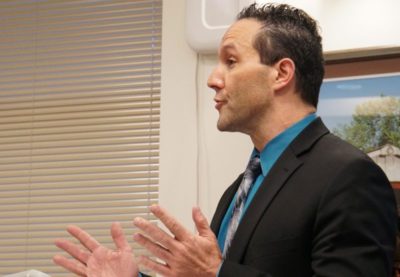
It has already engaged community stakeholders, who are now eager to capture the types of investment and economic development that have revitalized other parts of the state.
“That’s sort of the icing on the cake when you talk about landing a global IT company,” said Marc Saluk, Hunterdon County’s director of economic development. And there is “already monumental value” to having a company like UNICOM take over the campus, he added, even before he considers its corporate philosophy and approach to the community.
“The fact that you can build on — just in and of itself — the value of the Merck property would be hard to believe,” Saluk added. “Yet when you get exposed to how UNICOM goes about doing their business, you realize that you got that extra value.”
Hong visited the newly renamed UNICOM Science and Technology Park in mid-October, two weeks after closing on the property, in an effort to introduce his company to the local community. Speaking to more than 150 public officials, businesses leaders and other invitees, the Korean-born CEO recounted how he came to Los Angeles at age 20 in the late 1970s — not speaking English — and enrolled in programming classes at Pierce College.
He founded UNICOM just a few years later in 1981 in order to develop software products for IBM mainframes, but has moved the company into telecommunications, robotics and a host of other fields through its own growth and dozens of acquisitions. Today, the business is made up of 48 corporate entities across 170 countries, serving millions of customers including “virtually every technology company you can imagine,” he said.
When it came to finding a new regional headquarters, UNICOM looked at sites across New Jersey, New York and Connecticut, including the long-vacant, 1 million-square-foot BASF complex in Mount Olive. But Hong said the pastoral Merck property off Interstate 78 “by far was the best location.”
He conceded that the deal was subject to a long list of regulatory issues stemming from Merck’s sheer size and the fact that it is a public company, which led to a multiyear process.
“It’s not like buying a home, where you do your due diligence and then you close escrow,” Hong joked, but said the end result made it a worthwhile experience: “It was a really wonderful collaboration between Merck and UNICOM … and the scale and magnitude of what we were talking about really inspired both organizations.”
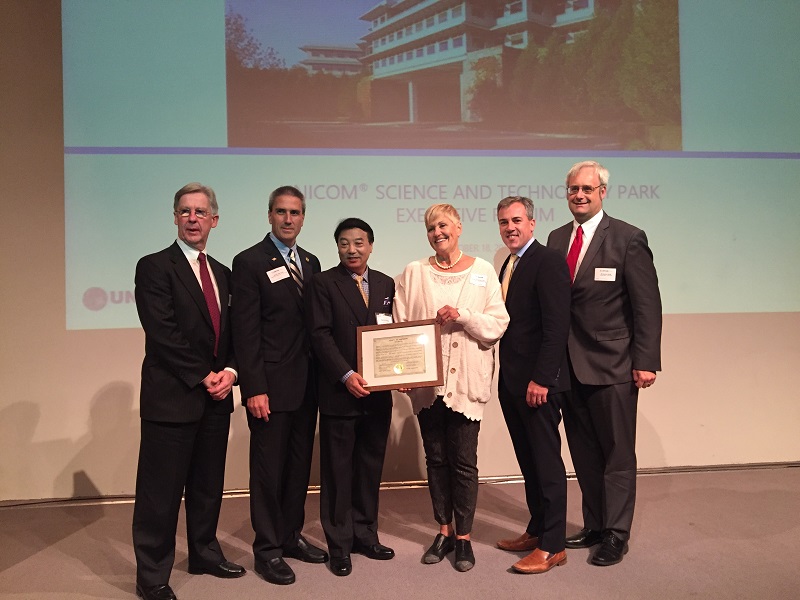
In the near term, its new campus on Oldwick Road will allow the company to consolidate its existing offices in Parsippany and Plainsboro, where it has had employees for many years, Hong said. It’s also looking to set up a 24/7 IT support team at the complex that would initially comprise around 100 people, which could include both new hires and employees who would relocate to New Jersey from elsewhere within its portfolio.
UNICOM’s long-term vision for the site is far more ambitious.
For one thing, it plans to open the campus to outside companies, higher education institutions, government agencies and other stakeholders focused on the tech sector in hopes of creating a hub for innovation and entrepreneurship, Hong said. The company will undoubtedly draw from its global network, which encompasses thousands of IT partners, suppliers and vendors.
“Our goal is to really help them, if we could, and also learn from each other and share ideas to really augment their business model,” Hong said. He believes that will spur economic development in the region, but it is all anchored by what he describes as “IT real estate” and the belief that it can reactivate properties like the former Merck campus.
“Real estate is an integral part of UNICOM,” Hong said. “Real estate can be a burden on a corporate balance sheet, but from UNICOM’s perspective, this is a very significant investment.”
Company executives are well aware of what that could mean to the area.
“It becomes an economic driver,” said Martin Webley, UNICOM’s director of business development. “It becomes a resource, a tool and really like a dynamo for the regional economy, for business owners and leaders and even academia to create employment in the process, but employment that is relevant to the future of the region and the state.”
Hong hopes to bring 1,000 employees to the campus in the coming years — potentially including workers from other companies — while noting the property has the capacity for many more.
It remains to be seen how much space UNICOM will occupy within the complex, but the company also plans to act as a landlord to many of the other organizations that will ultimately come to the site. Already, Webley said Hong and his team have engaged both “domestic and international entities that are likely prospects,” which would fit the mold of being aligned with UNICOM’s business and providing a broader benefit to the region’s economy.
“With all tenants, there will be more than the obvious reasons to have those entities in the campus and in the building,” he said. “There will be a logical, strategic fit with what they’re doing and what we’re doing.”
Such a project will seemingly mesh with Gov. Phil Murphy’s goal of spurring economic growth based on innovation. It will also mimic a strategy that UNICOM has sought to execute in other major markets, including Washington D.C. The company in late 2015 acquired a 694,000-square-foot office campus in Chantilly, Virginia, where it has established a regional headquarters for its government division and committed to creating up to 1,000 new jobs and using the campus as resource for its clients.
It is now set to bring its IT real estate strategy to Hunterdon County, which is capturing the attention of real estate experts in the area.
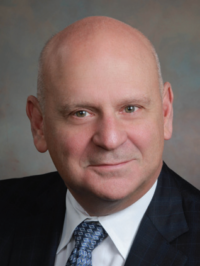
“Locating a large-scale tech user into a rural landscape cuts against the grain of what we’ve been seeing for the last decade,” said Jeffrey Otteau, president of Otteau Valuation Group, “because what we’ve been hearing is that tech users and tech companies have been shifting to a more urban footprint in order to be able to recruit recently educated, technical-minded millennials.
“And this flies in the face of that.”
But for all it may do to support Murphy’s economic platform, UNICOM’s arrival may in fact be the most meaningful to its host community and the neighboring towns in Hunterdon County. Retail vacancy within a five-mile radius of the former Merck property jumped from 4.8 percent in 2015 to 16.5 percent through the third quarter of this year, according to data compiled by Otteau’s firm. That figure is more than triple the vacancy rate for all of Hunterdon County and nearly four times the statewide rate.
Otteau’s Matawan-based firm also found that, through Q3, the median price for home sales within that same five-mile radius was 84 percent of the prerecession peak in 2006. That swath of the market is underperforming when compared to both a 10-mile radius and all of New Jersey, where median sale prices are 91 percent and 92 percent of the peak, respectively.
And while Otteau and others cautioned that there are other factors to consider when it comes to home-buying demand, they said it was difficult to overlook the ripple effect of Merck’s departure.
“Anybody who is frustrated with the low level of buyer demand here cites the vacancy there as a negative contributing factor,” said Kelly Gordon, the broker of record with Leaf, Realtors in Tewksbury, referring to the former Merck property. She had not seen a direct uptick in demand as of late October, she said, noting that prospective sellers were in a holding pattern as they waited to learn more about UNICOM’s plans and its employees’ housing needs.
But even with the current uncertainty, “there’s definitely a lot of optimism” around the county.
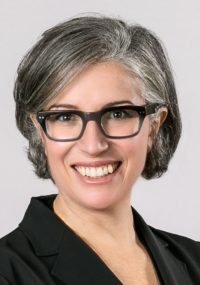
“This is a market that is known for being upscale and very beautiful, but it has not enjoyed the same buyer demand that other areas of New Jersey have,” Gordon said. “So to have a large employer coming in, it creates a lot of buzz.”
Saluk, the county’s economic development director, said UNICOM has shown itself to be “interested in community partnerships like we’ve never seen before.” That interest goes back to well before the company and Merck had reached an agreement for the site this past July, allowing county officials to play a role in making those connections.
“We knew that we had something special almost from the get-go,” he said. And the prospect of landing UNICOM was all the more exciting, given that Hunterdon County had just recently launched its own economic development platform focused on innovation and technology.
“There are a lot of ways that their presence will allow us to realize our economic development goals, even before you get into all the specifics about what they’ll be doing at the site.”
Local stakeholders are now eager to continue their support of their newest corporate citizen.
“We’ve seen enough to know that they’re going to be successful,” Saluk said. “And we’re going to do everything we can — and I’m sure Readington feels the same way — to partner with them so that they can be successful. And we know if those things happen that we’ll be very happy in the end with the number of employees and other things that develop at that site.”

For the record
UNICOM Global closed on its acquisition of the former Merck campus on Oct. 1, taking control of a property that includes office buildings, data centers, conference centers, heliports, a central utility plant and solar farms, among other features.
A team of JLL brokers including Dan Loughlin, Joe Garibaldi, Jodie Matthews and Peter Ladas completed the sale on Merck’s behalf, while Cushman & Wakefield’s Frank Truesdell represented UNICOM. The magnificent property had become a poster child for New Jersey’s glut of obsolete suburban office parks — following word in 2012 that the pharmaceutical giant was moving its headquarters to Summit — complicated by its massive size and its location in a more rural section of the state.
After completing the long-awaited and closely watched deal, the Beverly Hills-based company has renamed the property UNICOM Science and Technology Park.
Community service
As much as it plans to welcome other forward-thinking companies and academic leaders, UNICOM Global is also adamant about engaging local residents and businesses.
CEO Corry Hong said as much during the company’s presentation in Whitehouse Station in mid-October, noting that there are some 300 national contractors and suppliers supporting the former Merck property, but that he has instructed his team to look for smaller mom-and-pop operators that could provide those services.
“That’s a fundamental of me being the founder and me being the sole shareholder,” Hong said. “It’s really a unique opportunity to prioritize what is important.”
Hong showed a genuine appreciation for the opportunities he has found in the U.S. in the 40 years since he arrived from Seoul, Korea. He noted that, despite working with major corporations like IBM and Merck — not to mention the federal government — “in my heart, as an entrepreneur, I still run UNICOM as a mom-and-pop shop with a very small organization.”
That means relying on local services, such as the local electrician and the insurance company he has used for decades in Los Angeles, rather than giving his business to large national operators.
“With so many of these entrepreneurs and hardworking people,” Hong said, “if I have the opportunity that I can help in some degree, that’s the way I show my gratitude.”

